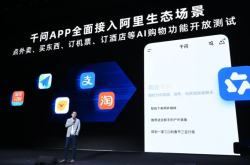Xiaomi's Auto R&D Hub Makes a Bold Entrance, Snatching Talent from BMW's Backyard
![]() 03/18 2025
03/18 2025
![]() 739
739
Sending Shockwaves in Munich: 'The Wolf is Here' – Lei Jun Hastens Overseas Expansion, Aiming to Capture Market Share from Traditional Auto Giants like BMW.
Multiple reliable sources confirm that Xiaomi is constructing an R&D center in Munich, Germany – the epitome of the automotive industry, situated just 3 kilometers from BMW's headquarters.
With a total investment of 300 million euros, the center is scheduled to become fully operational in the second quarter of this year, aiming to amass a team of 500 engineers.
Why Munich?
Munich stands as the epicenter of the European automotive industry, hosting industry titans such as Bosch and Siemens, and being home to BMW, Mercedes-Benz, Audi, and Porsche. The R&D center's location, just 2 kilometers from BMW's headquarters and adjacent to Porsche's R&D base, underscores Xiaomi's strategic intent to tap into the region's robust supply chain and technical expertise.
Furthermore, the European Union's plan to phase out internal combustion engine vehicles by 2035, coupled with substantial German government subsidies for electric vehicle R&D and consumption, creates a conducive policy environment for Xiaomi's overseas endeavors.
In essence, Xiaomi Auto aims to seize this opportunity to align with top automakers, attract top talent, ride the policy wave, and penetrate the European premium market.
Who is Xiaomi Recruiting?
Industry insiders reveal that Xiaomi is actively recruiting senior managers, vehicle engineers, chassis engineers, and other key positions in Munich, aiming to assemble a comprehensive R&D team tailored for overseas markets and supporting the R&D center's establishment. The offered benefits are highly competitive, with senior managers' annual salaries on par with those at BBA, and vehicle engineers receiving a 30% pay hike. Xiaomi plans to invest an additional 500 million euros over the next three years to bolster its R&D capabilities.
Recently, Xiaomi recruited two veterans from the German automotive industry to lead its European R&D center:
- Rudolf Dittrich, the current head of R&D center operations, who has a 23-year tenure at BMW, overseeing the M, Z, and flagship 8 series. Rudolf's decision to join Xiaomi marks a significant shift from a luxury brand to an emerging force.
- Ricard Aiguabella Macau, the current chief aerodynamic engineer, who led the aerodynamic design of the Tesla Model Y and served as an aerodynamic expert for the Ferrari F1 team.
The Strategic Mind Behind the Move
Xiaomi Auto's SU7 has witnessed robust sales in Europe, and this R&D center serves as a 'technological beacon.' Xiaomi and BMW forged a cooperation agreement as early as 2024, hinting at potential deeper ties in the supply chain and autonomous driving sectors.
The European market harbors a strong appetite for smart electric vehicles, yet local automakers are slower to adapt. Xiaomi intends to capitalize on this gap.
At the 2025 Mobile World Congress, Lu Weibing, Xiaomi Group's partner and president, unveiled Xiaomi Auto's overseas expansion plan, aiming to launch globally by 2027. Earlier, Lei Jun also indicated that Xiaomi Auto plans to enter the European market by 2030.
However, with high labor costs and fierce competition in Europe, Xiaomi's success hinges on its subsequent performance.
Netizens have been vocal with comments like, 'Is Lei Jun attempting to snatch market share from BMW's doorstep?' and 'The Munich version of 'The Wolf is Here' – traditional automakers should be on alert.'
Chinese New Energy Vehicle Manufacturers Accelerate Overseas Expansion
Xiaomi is not alone in this endeavor; Chinese new energy vehicle manufacturers are also accelerating their overseas expansion, with the European market emerging as a key target.
Besides Xiaomi, Li Auto established an overseas R&D center in Munich in January 2025 and plans to intensify its overseas push in the coming years. NIO has a design center in Munich, one of its four global hubs. XPeng Motors has successfully entered the European markets of Poland, Switzerland, the Czech Republic, and Slovakia, with plans for further expansion. BYD aims to build a battery factory in Europe by 2026.
Evidently, Chinese new energy vehicle manufacturers are striving for global breakthroughs and accelerating their overseas expansion to achieve 'overtaking on curves.'







